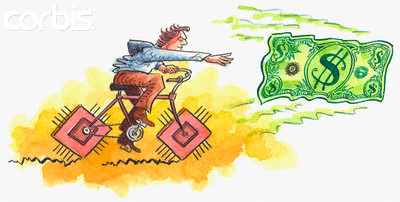Prior to embarking on this outdoor cycling around the world adventure, I would not have even imagined living comfortably on $6USD dollars a day. Back in Alaska, $6USD a day pretty much got you a glass of water maybe some bread and a place to warm up prior to walking home in the cold arctic breeze.
The cost of fuel when it  is cold always weighs on the budget like a glacier carving out a canyon in the springtime high noon sun. Therefore, walking or taking the shoe lace express always proved out to be cheaper and healthier than driving a gas guzzling environmentally destructive car or truck.
is cold always weighs on the budget like a glacier carving out a canyon in the springtime high noon sun. Therefore, walking or taking the shoe lace express always proved out to be cheaper and healthier than driving a gas guzzling environmentally destructive car or truck.
Here in Cambodia, the money story is a unique scene. Cambodia has 2 currencies. Pay in US dollars and then get change in riel (local Cambodian currency). It seems no one here can accurately calculate the change, so the exchange rate between riel and USD is a bit of a mystery. For instance today, I paid the bank 1$ USD to buy the local riel Cambodian currency, the currency that is used outside of the tourist center, where I spent most of my time cycling through the villages.
Bartering to keep your budget, is a common practice in most of the world and one that affects the budget quicker than a moving train. It is a necessary learned art by most people who travel. The general rules of the bartering game are offer low and work up from there somewhere between 1/3 and ½ of the starting price is what you will pay. In Mongolia, my favorite place, the popular Asian habit of bartering for the true price is not practiced and watching tourist who try it is nothing more than insanely comical. In Mongolia, in the center of Asia, just north of the bartering capital of the world, China the price for the coveted item is set and the local people can’t be bothered with bartering.
However, in a lot of Asia countries, the price is not set and it depends on how good you are at playing the battering game to determine the fair price of even a plate of rice. China and Vietnam being the prime examples of how low can you go in the bartering world. Often, the budget is nothing more than an estimated figure in which we hit the road for our adventures. So what can we do to lower travelling costs and stick to the budget? Here are 3 tips…
Tip 1 Avoid the lonely planet recommended anything. The lonely planet travel guide has become known as the bible in the budget travel scene. The book recommended restaurants, hotels etc. are indeed budget but the place next door is usually charging less and the owners are more than happy to have you there. Sad but true but at times the folks listed in the lonely planet travel guide haven’t asked for the notoriety and are understandably pretty tired of the volume. For only in the commercialized developed world is bigger, better, more a relished personal attribute.
Tip 2 Stick with the locals and avoid all tourist based marketing ploys to offer you tickets, cheaper eats etc. Often the third class or super budget class travel seat or area is where the locals park themselves. I heard from a solo traveler the other day that he was weary of going to these places because he wanted to meet other travelers. All of the places I have been in the less visited area always have other travelers and they are normally like minded super budget travelers as well. For instance, today in my guesthouse, three blocks from the double priced tourist center, I met a Korean man travelling on a bicycle, we will be venturing 3 days by bicycle to the next stop together.
Tip 3 Be Creative. Every outdoor adventure needs supplies. Be creative and make what you can. Instead of wearing the top end fashionable gear products find suitable local thing that will do the trick. For instance, I found a straw hat on the road which serves as a sun repellant. I also picked up a $2USD pair of local pants and a $4USD long sleeve shirt to keep the sun off while I pedal in the Asia sunshine. I could of spend double that on sport specific clothes, UV barrier tank tops etc. I now have a local look that does the trick and is more suitable for the climate. If it is good enough for the population of millions who have been living here for centuries it is good enough for me.
CLICK HERE FOR AN ARTICLE ABOUT BUDGET TRAVEL AND THE BICYCLE
Join The Mailing List And Get Exclusive Gear Deals and All The News From The WOW Wall!

